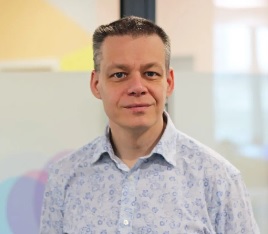Bold minds, Serendipitous Discoveries: The True Basis of Drug Innovation
“Chance only favours the mind which is prepared”. Or so Louis Pasteur is reported to have said back in 1854. Alongside this famous observation in his speech to the Faculty of Sciences in Lille, we are told that he also noted “And opportunity favours the bold…”
But in the era of rational drug discovery, are chance and opportunity less important? As we understand the complexity and molecular basis for disease in more detail and use these findings to empower our search for specific and impactful therapies, we don’t just leave things to chance, do we?
“Of course not”, we cry… As we better understand human disease and seek better therapies, we craft careful hypotheses, test these with robust experiments and use these to further our understanding. That understanding suggests emerging molecular targets, against which novel drugs can be designed. Logical questions, experiments, and deductions drive projects most efficiently toward clinical success and patient benefit.
Science – driven by logic or learning?
But is science truly logical? It would be remiss to overlook the creativity and imagination of the scientific team, essential as we create groundbreaking therapies. We are drawing together results and hypotheses to suggest alternate directions to pursue and experiments to try. Novel compounds to synthesise, and novel applications of those molecules.
Yet, the path to success isn’t straightforward. What is the unexpected result? Is the molecule showing unexpected activity? That unexplained peak in a crude reaction LC-MS? That odd phenotype that differs from all the rest?
It’s easy to dismiss the outlying result as just that – and put it to one side. But the prepared mind, the bold mind seeking opportunity, may see it differently. What is that result telling us, and where might it lead us?
Reflecting on all the clinical candidates I’ve been involved in discovering, there’s been at least one occasion where serendipity has delivered a step change in our understanding. A side product, carefully isolated, led to significant potency improvements. An off-target liability that offers a new starting point. Or an unusual phenotype offering a novel biological hypothesis or clinical application. Easy to miss, but often pivotal to success.
Serendipity comes with its challenges. Investigating every unusual result opens up endless avenues of research that could distract from real progress, delivering nothing but dead ends. But the prepared mind and the experienced team can draw upon their collective wisdom to help prioritise opportunities worthy of exploration and filter out distractions.
The power of the human researcher.
Here’s where the human team shines amidst the growing trend of AI-driven drug discovery. Experienced scientists possess a valuable toolbox of undocumented learnings, experiences, and anecdotes, gained across many projects. These are seldom written down or documented in the literature and are therefore unavailable to the canon of knowledge that AI draws upon to generate decisions. The power of the human team is to use this collective but undocumented wisdom to embrace opportunism and chance observation and, more importantly, to understand its significance. They are employing the prepared mind to recognise opportunity, and being bold enough to investigate.
Pasteur’s preparedness of vision and boldness of investigation delivered step changes in science. From brewing and baking to infection control and antibiotics. By adopting these values and exploiting the uncertainty, observations and chance findings, perhaps we can provide similar step changes for the patients for whom we seek to deliver the next generation of therapeutics.
About the author
 Dr Allan Jordan brings over 23 years of medicinal chemistry and drug discovery experience, successfully delivering compounds to clinical trials in various therapeutic areas. Formerly at RiboTargets and later Head of Chemistry at Cancer Research UK, he led research activities, and collaborations, and engaged in science communication, earning a CRUK ‘Flame of Hope’ award in 2016.
Dr Allan Jordan brings over 23 years of medicinal chemistry and drug discovery experience, successfully delivering compounds to clinical trials in various therapeutic areas. Formerly at RiboTargets and later Head of Chemistry at Cancer Research UK, he led research activities, and collaborations, and engaged in science communication, earning a CRUK ‘Flame of Hope’ award in 2016.
